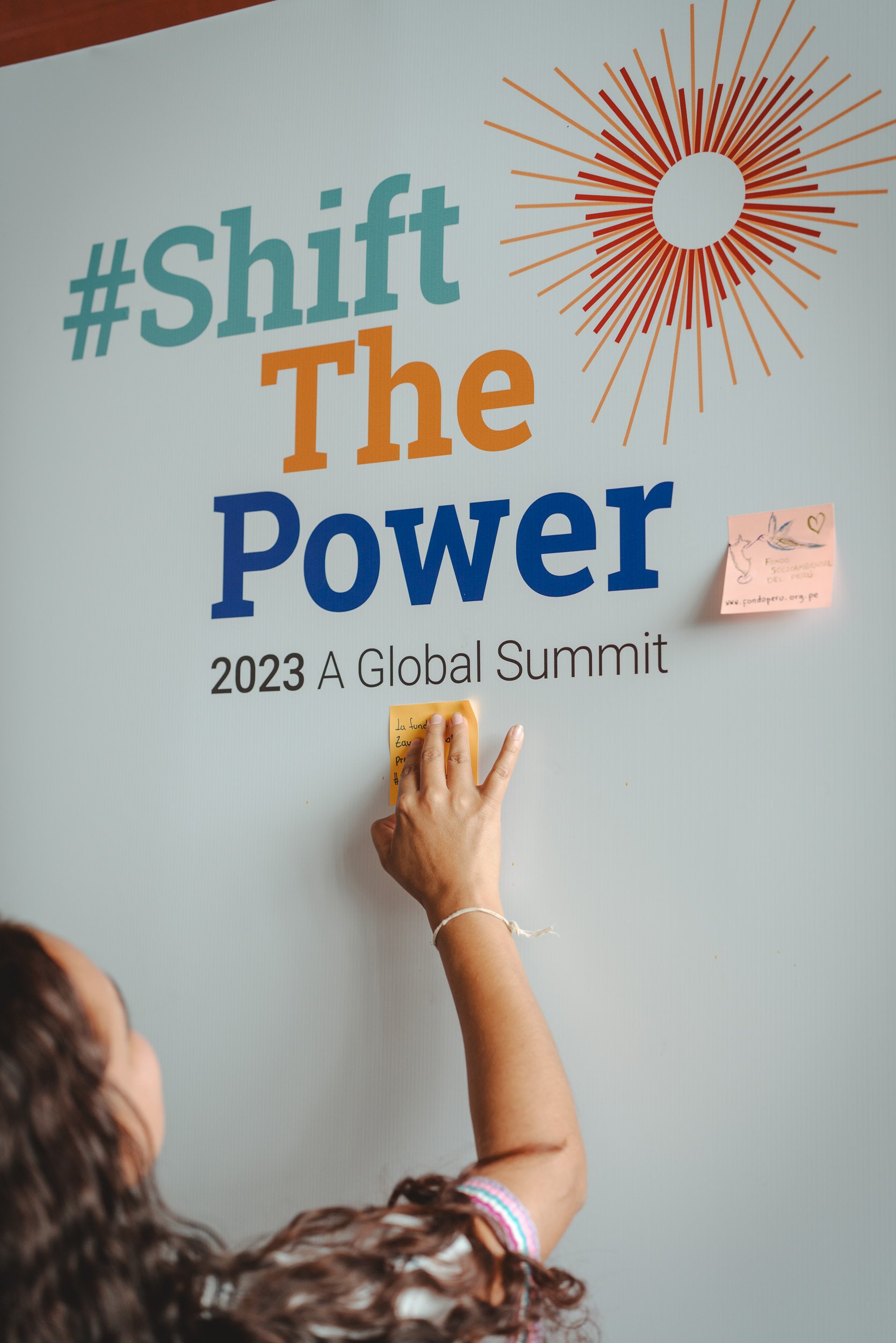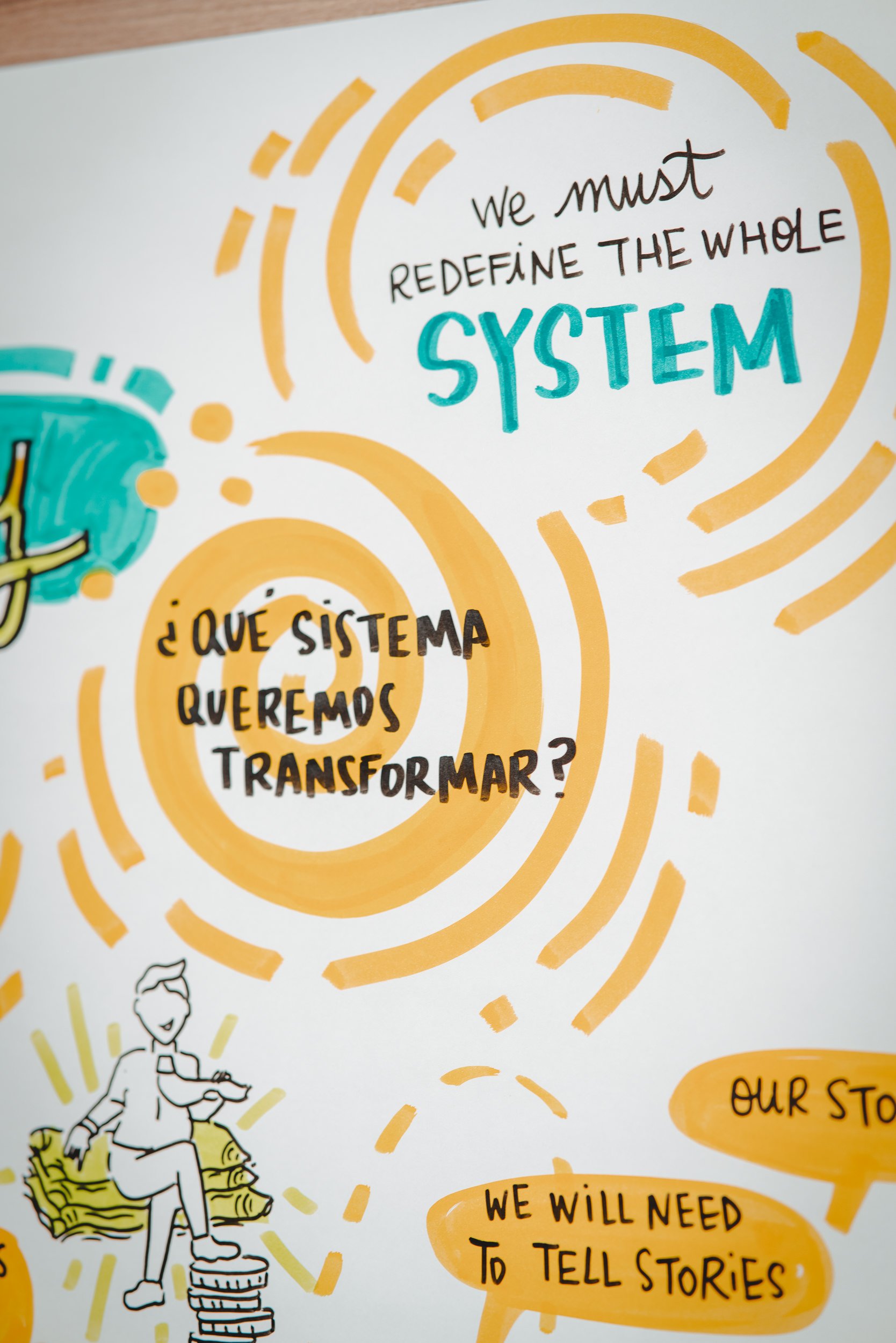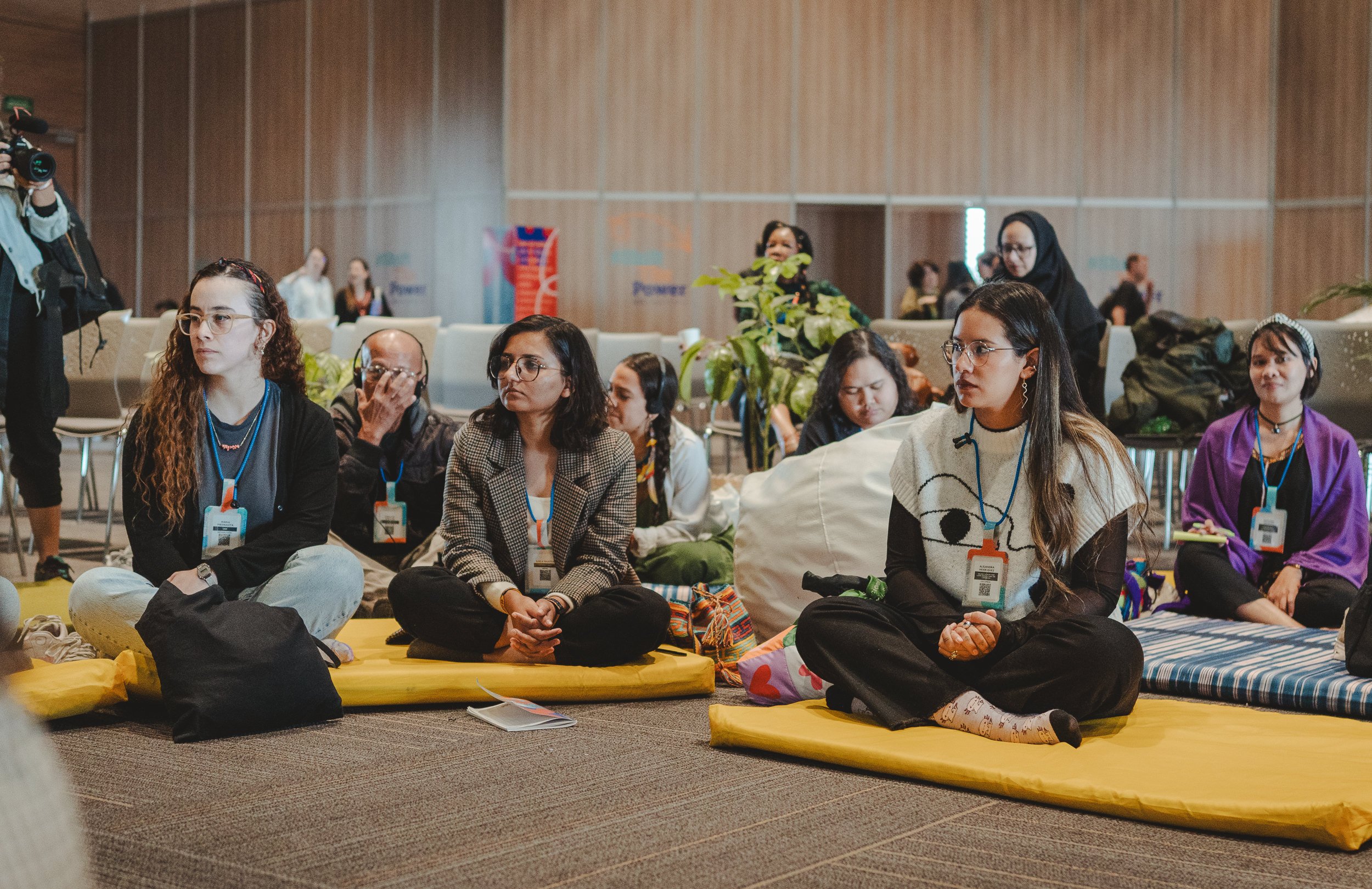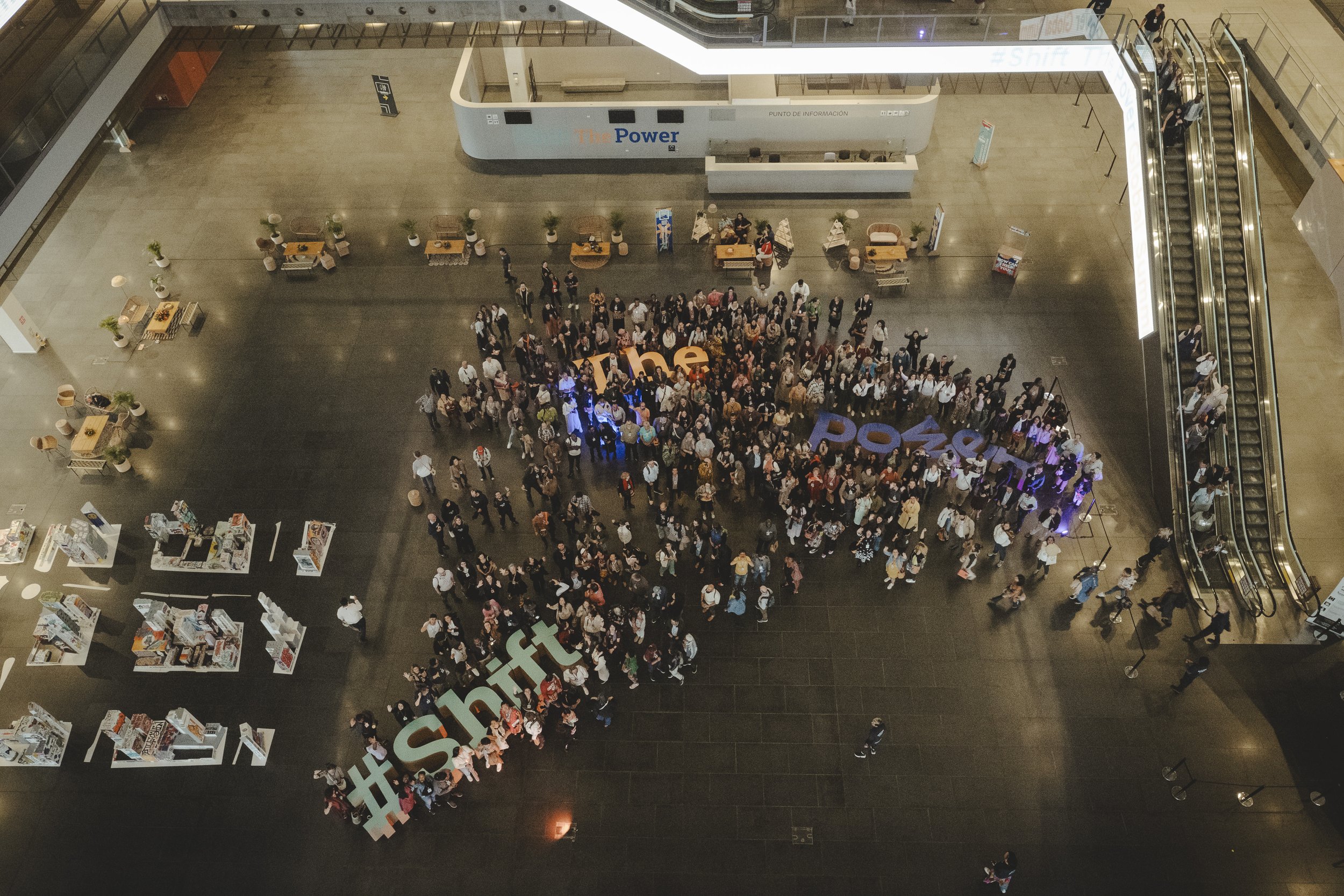Empowering communities: insights from the #ShiftThePower Summit in Bogotá
Shifting the balance of power in humanitarian and development decision-making is at the heart of CDAC Network’s mission. Our vision is that communities will have the information and resources they need to determine their own solutions and be central stakeholders in the decisions that impact them.
This vision resonated deeply at the #ShiftThePower Summit, hosted by the Global Fund for Community Foundations, Global Nation and Territoria in Bogotá, Colombia on 5–7 December 2023.
CDAC member Loop was there: Alex Ross, Loop’s founder, shares her reflections.
Inclusion in action
The Summit unfolded as an inclusive dialogue, bringing together a diverse network of 700 people from more than 80 countries, with strong attendance primarily from foundations and peacebuilders, but also many activists and feminist movements at local, national, regional and global levels.
As Barry Knight put it, to achieve change we need to remove ‘egos, logos, silos and halos’ – and this commitment was evident at the Summit. It felt like a warm embrace: extremely inclusive and uplifting. Participants arrived burdened by the world’s crises and the sense that the current system is not fit for purpose. They left invigorated with new ideas, connections and a commitment to work to shift power and increase accountability, aptly likened to an ‘army of ants’ by Nana Afadzinu from the West Africa Civil Society Institute (WACSI).
The varied programme of sessions explored, among other topics, the inherent political power of defining what we measure – who defines it, who it is for and how it can shape our work and the resulting impacts; how to elevate local voices through effective storytelling; how to design regenerative activism to avoid burnout.
Decolonisation and cross-border solidarity
Powerful interventions – from voices as diverse as Soheir Asaad from the Palestinian RawaFund, Marie-Rose Romain Murphy from Haiti, Hibak from NEAR Network and Magda Pochec from FemFund Poland – called for greater justice and a spotlight on the root causes of injustice within the current response system. Soheir Asaad emphasised that change requires ‘shifting our own mindsets and our culture; we need to unlearn’.
At a conversational session on decolonisation, I heard experiences of trauma and frustration from an Afghani woman, a Syrian man, Palestinian and Sierra Leonian activists and an Indigenous American My feeling of collective guilt was deep and important to experience. We agreed that the colonial mentality lives on within countries as well between them; that it is baked into the current systems and structures that perpetuate the status quo and rob people of their dignity, voices and equity.
The Summit created a vital space for cross-border solidarity. For example, Natalia Boyko, from the Loop Ukraine team, found encouragement in the international show of support for the Ukrainian people. Connections forged with new friends in eastern Europe are poised to sustain global attention on their experiences by fostering collective efforts.
Technology’s role in shifting power
A breakout session initiated by Decoland examined how we can use technology to shift power rather than letting it reinforce existing structures. Digital development consultant Matt Haikin made an astute point: power is never mentioned in conferences on technology, and technology had not yet been mentioned in this conference on power. Yet digital technology is increasingly a vector of geopolitical power and is shaping both humanitarian crisis and response, as was discussed at the CDAC Network Public Forum in November 2023.
I see a substantial opportunity to invest in technology that can facilitate inclusive, networked and decentralised models of information sharing, engagement and decision-making to help effectively redistribute power. This approach should be locally anchored and led, ensuring accessibility for all, including those within existing power structures.
#ShiftThePower: taking action
I left the Summit contemplating: to whom are we shifting power? And what concrete actions can be taken?
Recognising that power takes diverse forms and meanings in different contexts, it’s not surprising that participants left with varied perspectives on these questions. From my vantage point, the answer is to take responsibility, as an individual and within my organisation, to relinquish power. My focus is on supporting crisis-affected communities to ensure they possess both agency and the authority to define and safeguard it.
This approach will vary for each community and individual, adapting over time as contexts evolve. Reflecting on this has deepened my belief in Loop’s charitable franchise model, where Loop is invited to a country and owned nationally. It is then adapted to each context and available for different communities and experiences over time.
The Loop team’s main takeaway was the pivotal role of community engagement, which emerged as an essential foundation in every conversation we heard at the Summit. To truly #ShiftThePower, we must place communities at the centre and learn to really listen to them.





